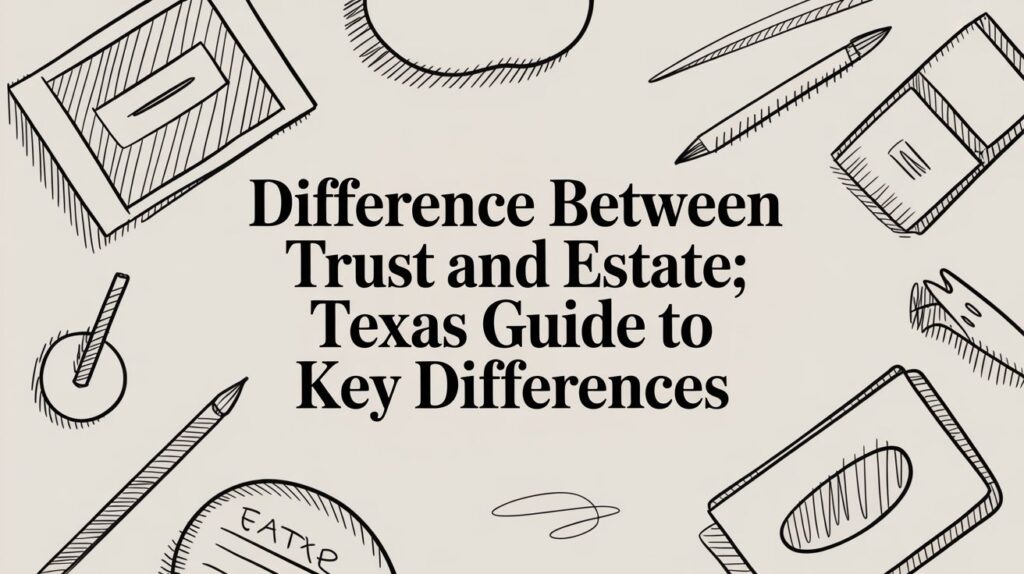Probating an estate is rarely straightforward. However, when Texas real estate is tied to a business entity, the process becomes significantly more complex. These added complications often arise because of the legal and financial intertwining of business interests, real estate, and estate law. In this article, we’ll provide a comprehensive look at what executors, business owners, beneficiaries, and legal professionals need to know when handling probate for Texas real estate tied to business entities.
Understanding the Basics: What is Probate?
Before diving into the nuances of probating real estate connected to business entities, it’s essential to understand what probate is. Probate is the legal process that occurs after someone dies, during which their will is authenticated, and their assets are distributed to beneficiaries. This process is overseen by a probate court to ensure all assets are handled correctly, debts are paid, and the estate is distributed following Texas law.
When real estate is involved, especially in Texas, probate can get even more intricate because of state-specific rules. Some of these could be such as community property laws and the homestead exemption.

The Intersection of Probate and Business Entities
When real estate is tied to a business entity, the probate process becomes much more complicated. It could be a corporation, limited liability company (LLC), partnership, or another structure. This is because business entities often own or have a stake in real estate. As a result, it makes the transfer or sale of that property less straightforward. In such cases, the executor must navigate not only probate laws but also business laws and the contractual obligations tied to the business entity.
Key Scenarios in Texas Probate for Real Estate Tied to Business Entities
To better understand how probate works for real estate linked to business entities, let’s look at some common scenarios:
Real Estate Owned by a Sole Proprietorship
In this case, the real estate is legally considered an asset of the deceased person’s estate, just like any other asset. Since a sole proprietorship is not a separate legal entity from its owner, the real estate will be included in the decedent’s estate and must go through the probate process like other personal assets.
Real Estate Held by a Partnership
When real estate is owned by a partnership, things get more complicated. In this case, the terms of the partnership agreement will often dictate what happens to the real estate upon the death of a partner. For example, if the agreement has a “right of survivorship” clause, the deceased partner’s interest in the real estate may automatically pass to the remaining partners. If not, the deceased partner’s interest will become part of the probate estate.
Real Estate Owned by a Corporation
Corporations are separate legal entities, so real estate owned by a corporation doesn’t automatically become part of the deceased shareholder’s estate. Instead, the deceased person’s shares in the corporation will go through probate. However, if the decedent owned a controlling interest in the corporation, decisions about selling or transferring the real estate may still impact the probate process.
Real Estate Owned by an LLC

An LLC can own real estate separately from its members. Upon a member’s death, the LLC’s operating agreement generally determines what happens to the decedent’s membership interest. The executor of the estate may need to work closely with the LLC’s remaining members to figure out whether the decedent’s interest in the real estate can be sold, transferred, or bought out.
Real Estate Subject to Business Debts
If the real estate owned by a business entity is tied to business debts—such as mortgages, loans, or liens—these obligations must be addressed before the property can be transferred or sold. This can make the probate process longer and more complicated, as debts must often be paid off using estate assets or proceeds from the sale of the real estate.
Step-by-Step Process for Handling Probate Involving Business-Owned Real Estate in Texas
Now that we’ve explored some common scenarios, let’s walk through the step-by-step process for handling probate for Texas real estate connected to a business entity:
1. Determine Ownership and Structure
The first step is understanding how the real estate is owned and which business entity holds the title. Review ownership documents, including deeds, business agreements, partnership contracts, operating agreements, and articles of incorporation. Each business structure handles property differently, and these documents will provide critical insights into how probate proceedings should unfold.
2. Identify Business Agreements or Contracts
Most business entities have written agreements that dictate what happens when an owner or partner dies. For example, in the case of an LLC, the operating agreement might contain provisions for buying out a deceased member’s interest. In partnerships, there may be a clause that allows the remaining partners to take over the decedent’s share.
If there are no written agreements, Texas law will govern how the property and business interests are handled.
3. Determine the Deceased’s Estate Interest
The next step is understanding the decedent’s interest in the real estate and how it will be treated in probate. If the decedent owned real estate personally (such as through a sole proprietorship), it becomes part of their estate and is subject to probate.
In cases where the real estate is owned by a business, the probate process will only handle the deceased’s share of ownership in that business entity (e.g., shares in a corporation or membership interest in an LLC). The real estate itself will remain a business asset.
4. File for Probate in the Appropriate Court
After gathering all the necessary information, the executor must file for probate. This could be in the Texas county where the decedent lived or where the property is located. Texas allows for several types of probate processes, including:
- Independent Administration: The simplest form, with limited court supervision.
- Dependent Administration: A more court-supervised process where approval is required for most actions.
- Muniment of Title:. A streamlined process used primarily for transferring title to real estate when no other formal probate is required. The type of probate depends on the complexity of the estate and whether the real estate is the primary asset.
5. Work with the Business Entity
As probate moves forward, the executor will need to work closely with the business entity. This could involve transferring shares or membership interests to beneficiaries, handling the buyout of the decedent’s stake, or even dissolving the business if necessary. Collaboration between the executor and business partners is essential to ensure a smooth process.
6. Address Any Business Debts or Obligations
If the real estate is tied to any business debts—such as loans, mortgages, or liens—these must be dealt with before the property can be transferred or sold. The executor must ensure that any outstanding debts are paid. This could be either from the estate’s assets or from the proceeds of the real estate sale.
In some cases, the business entity may continue operating, with the remaining owners assuming responsibility for debts tied to the real estate.
7. Transfer or Sell the Real Estate
After debts are settled and business interests resolved, the real estate can either be transferred to beneficiaries or sold. The decisions that follow depend on the terms of the will or business agreement. If it is being sold, the executor must ensure that the sale complies with both probate law and any business entity agreements.
Texas real estate sales involving business entities can be particularly tricky. Some factors affecting the process include business taxation, ownership structures, and zoning issues.
8. Final Distribution of Assets
Once the real estate is either sold or transferred, the executor will distribute the proceeds or the real property to the designated beneficiaries. This final step involves wrapping up all remaining obligations, including filing the necessary paperwork with the court.
Key Challenges in Probate for Business-Owned Real Estate

1. Conflicting Interests Between Business Partners and Heirs
One common challenge is navigating potential conflicts between business partners and heirs. While partners may wish to maintain control of the business, heirs may be more interested in liquidating the decedent’s assets. The executor will need to balance these competing interests delicately.
2. Complex Business Structures
Probate becomes even more difficult when the business entity is structured in a complicated way. This could mean having multiple layers of ownership, subsidiaries, or foreign partnerships. Untangling the web of ownership can take time and expertise.
3. Tax Implications
Transferring or selling real estate connected to a business entity can have significant tax implications. This is the case both for the estate and for the business itself. Executors need to work closely with tax professionals to ensure that all tax obligations are met and that the estate is not subject to unnecessary tax liabilities.
Conclusion: A Delicate Balancing Act
Handling probate for Texas real estate tied to business entities is a delicate balancing act that requires careful attention to legal, financial, and interpersonal dynamics. Executors need to navigate the probate process while also managing business agreements, settling debts, and ensuring that all parties’ interests are respected. By understanding the complexities involved and working closely with legal and business professionals, you can successfully probate real estate tied to business entities while honoring the wishes of the deceased.








